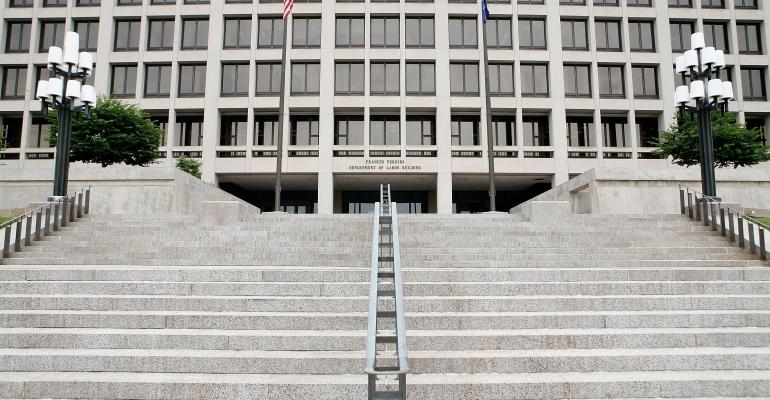The Department of Labor released another batch of frequently asked questions related to the fiduciary rule, the first part of which went into effect on June 9. This time, the FAQs address advisors to 401(k) plans, providing guidance on disclosure requirements during the transition period and recommendations to increase contributions and plan participation.
Advisors and other service providers to 401(k)s are subject to 408(b)(2), a section of ERISA requiring disclosure of fees, and what services are being offered to the plan for those fees. That includes disclosing their fiduciary status. Since many plan advisors are now required to act as a fiduciary as of June 9, their status has changed, and that has created confusion as to whether they must update their 408(b)(2) disclosures.
If an advisor will continue to act in a nonfiduciary capacity or has already disclosed their fiduciary status, then no further disclosure is needed, according to the FAQs.
The Best Interest Contract Exemption and Principal Transactions Exemption in the fiduciary rule were delayed to January 1, 2018, and required disclosure of fiduciary status. So there is no disclosure requirement at the moment. But to clear up confusion about compliance during the transition period, the department said advisors need not use the term “fiduciary,” even if they will act as fiduciaries under the new rule. But they need to accurately disclose their services, including those that would make them a fiduciary.
Under 408(b)(2), advisors must disclose a change in fiduciary status within 60 days of the date they know of the change. The department now says that this can be disclosed as soon as practicable, even if it has been more than 60 days past the June 9 applicability date.
“The Department believes that the broad range of service providers who may have experienced changes in fiduciary status as a result of the Fiduciary Rule taken together with the uncertainty regarding the substance and timing of the Department’s past decision on whether to delay the applicability date of the Fiduciary Rule and related exemptions, constitute a unique and extraordinary circumstance beyond the control of current plan service providers that makes a 60-day disclosure period for changes in required 408(b)(2) regulation disclosures impractical and unreasonably short, at least for a significant percentage of affected service providers,” the department said.
The FAQs also clarify whether certain recommendations constitute fiduciary advice. And in general, a recommendation does not trigger fiduciary status unless it involves specific products or investment management of a particular security or other investment property. Recommendations that encourage additional savings or contributions to a plan, for example, would not be fiduciary investment advice. And the same goes for suggestions related to increasing employees’ participation or level of contributions to the plan.





